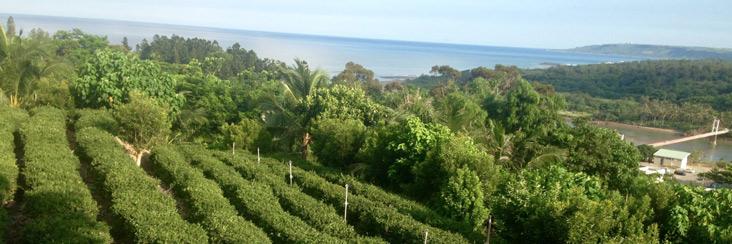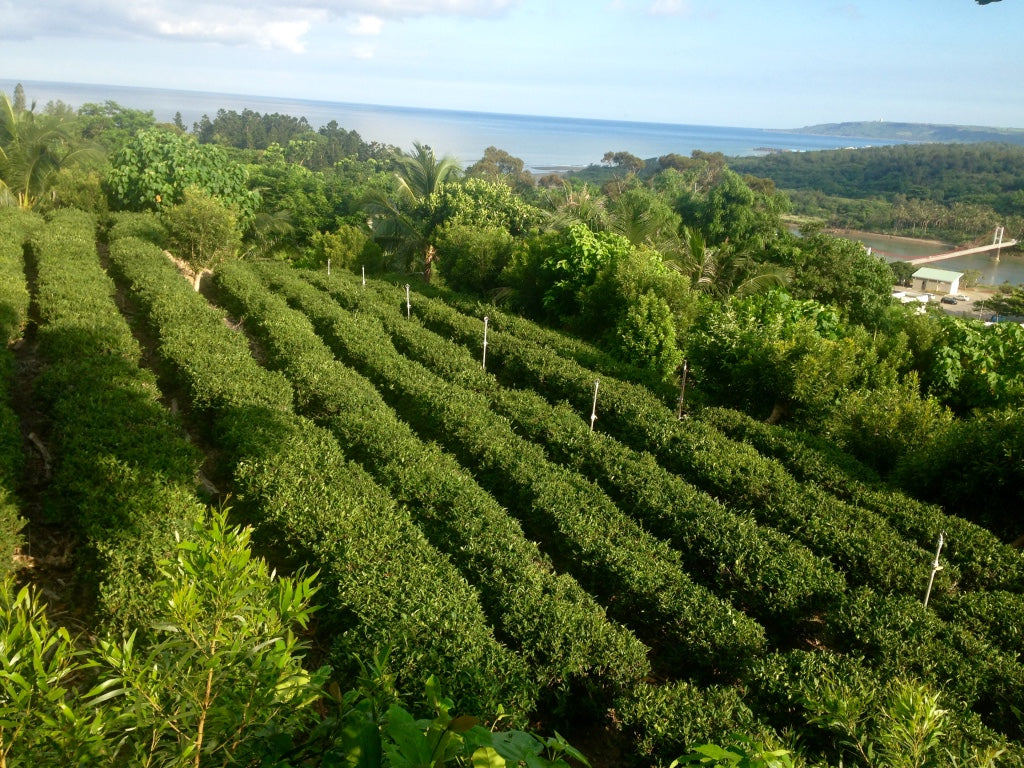
屏東縣港口茶 Pingtung Port Tea: A Historical Anomaly From The 19th Century
We finally got the chance to explore a site that has piqued our curiosity for many years. A tiny village at the southern tip of Taiwan that has cultivated tea since the 1880's! While it is well known that Oolong tea has been cultivated on the northern tip of the island since that time, this micro-production of a unique type of tea in the south has mostly been a local secret.

The Zhu family clan that has kept the tradition alive for over 130 years has continued to mostly cultivate the original strain of Wuyi tea that was initially brought over from Fujian, China. This tea strain is rare in Taiwan and considered a specialty. Adding to this the micro-climate of being right on the southern coast produces a unique type of tea.
While the local tradition has been to process these leaves as a green tea, we found one farmer who has innovated his processing methods to make a unique type of Oolong. His tea making is similar to Dong Ding Oolong in that he oxidizes the leaves enough to be suitable for roasting. He offers a freshly roasted version (below right) as well as an aged version (below left). His aged tea is 10 years old, and is lightly roasted at low temperature every two years. This craftsman is obviously not fussed about rolling his tea leaves as tightly and uniformly as other more modern Oolong producing areas of Taiwan have done in acquiescence to commercial standards. We can appreciate this more traditional style.

The experience of the overall scene here is quaint and authentic. These people are (still) just doing what they do, and it truly feels like a living exhibit of traditional culture. While they've implemented modern innovations such as irrigation systems and machinery to process their leaves, they have simply kept their inheritance in tact. It's truly a traditional product of regional origin that is unique in the world of tea.





